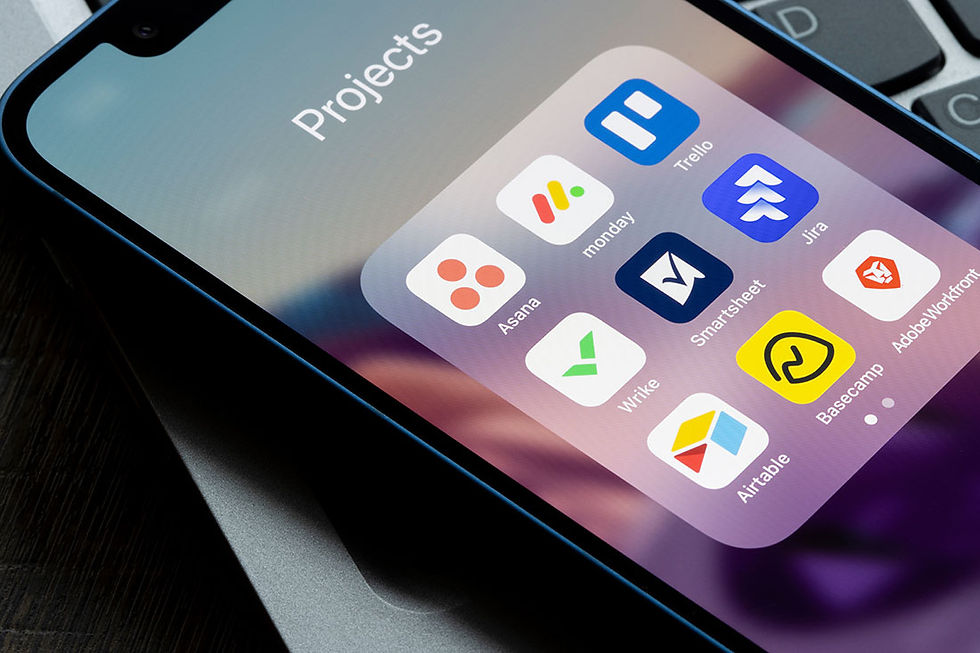Project management - best practices in a remote work environment
- Ngozi Fakeye | Programme and Change Director

- Nov 18, 2025
- 2 min read

The rise of remote work has transformed project management, requiring businesses to adapt their strategies to maintain cohesion and productivity. As companies navigate this shift, effective project management practices are essential for keeping remote teams connected, meeting deadlines, and delivering high-quality results. This article explores key strategies for successful remote project management.
Establish clear communication channels
Strong communication is the backbone of effective remote work. Without the benefit of in-person interactions, reliable communication channels are crucial for keeping teams informed and engaged. A mix of email, instant messaging, and video conferencing can help bridge the gap. Regular stand-up meetings—daily or weekly—ensure alignment, provide opportunities to address challenges, and keep projects on track.
Set realistic goals and milestones
Clear objectives and well-defined milestones are vital for maintaining focus and accountability in a remote environment. Breaking complex projects into manageable tasks with specific deadlines ensures steady progress. Tools like Asana and Trello allow teams to visualise assignments, track due dates, and understand dependencies, fostering better coordination.
Leverage digital project management tools
Technology is the cornerstone of effective remote project management. Digital platforms streamline collaboration, document sharing, and progress tracking. Solutions like Microsoft Teams, Basecamp, and Monday.com help centralise project-related information and workflows. Choosing tools that integrate seamlessly with existing software enhances efficiency and ensures team members have access to all necessary resources in one place.
Foster a culture of accountability
Remote work requires a culture where team members take ownership of their responsibilities. Without direct supervision, accountability is key to meeting deadlines and maintaining productivity. Encouraging regular progress updates, fostering open communication, and providing support when needed help teams stay motivated. Frequent check-ins reinforce goals, address roadblocks, and ensure individuals receive the guidance they need.
Prioritise well-being and work-life balance
Remote work can blur the lines between personal and professional life, increasing the risk of burnout. Prioritising employee well-being is crucial for sustaining long-term productivity. Establishing clear boundaries around work hours, encouraging regular breaks, and organising virtual team-building activities promote a healthy work culture. Supporting work-life balance not only boosts morale but also enhances overall performance.
In summary, mastering remote project management is essential in today's evolving work landscape. By focusing on accountability, communication, technology, well-being, and goal-setting, businesses can implement best practices that keep teams engaged and productive. Even in a virtual setting, these strategies ensure seamless collaboration and successful project outcomes.
If you need pragmatic support or expert guidance on your project management plans, please email us at: enquiries@ovacgroup.com for a free consultation.


Comments